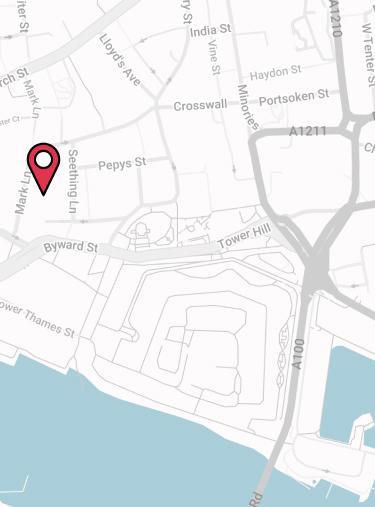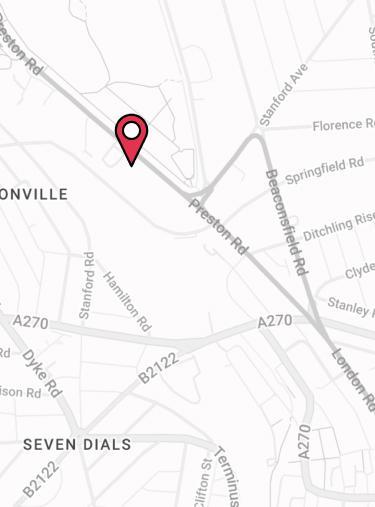
The 2018 Drewberry™ Protection Insurance Survey
Welcome to the Fourth Annual Protection Survey from Drewberry™, conducted by OnePoll. We’ve collected data from 3,000 workers aged 18-65, examining the UK’s resilience to financial shocks as Brexit approaches, as well as on their opinions and attitudes towards the insurance industry.
Is the UK public well-protected and how do they feel about the industry doing the protecting? Find out below.
Key Takeaways from Our Protection Survey…
From our survey results it’s clear to see as an industry we need to be doing far more to raise awareness of Income Protection. We believe it is the most valuable form of protection for working adults yet it is the least well known and most under-utilised form of personal protection.
We Must Raise the Profile of Income Protection
- More people have Mobile Phone Insurance than Income Protection
- More than 1 in 5 people get just 1 week or less of paid sick leave
- 1 in 4 Brits say they’d face financial ruin if out of work for only 4 weeks
- Nearly 1 in 4 people said they would have to turn to credit cards if they were without an income for 6 months
- 14.7% of the over 55s said they have been unable to work for over 6 months at some point during their careers
- On average respondents thought less than half of all Income Protection claims would be paid successfully
- The majority of self-employed people including contractors and freelancers get absolutely no sick pay, yet just 9.4% had Income Protection
- Nearly 1 in 5 self-employed people thought they weren’t eligible for Income Protection – one of the biggest barriers to uptake
- Despite being most in need, the self employed are the least aware of income protection insurance
- 17.2% of people said they have never heard of Income Protection Insurance
- 43% were labouring under the idea that Income Protection was too expensive
- People overestimated the average cost of Income Protection by 27%.
Despite being largely ignorant of how much sick pay we get, and 16.2% saying they get no sick pay at all, more than 1 in 3 people were relying on their employer to pay them if out of work for 6 months or more. This is an unrealistic expectation.
Most Brits Underprepared for Sudden Death
- People overestimated the cost of Life Insurance by 200%
- Respondents thought only 37% of Life Insurance claims would be paid successfully
- Almost 2 in 3 of us admit to not having written a will
- You’re SIX times more likely to pass away before retirement than most people think
- More than 1 in 6 people said that their loved ones would have to sell the family home to survive if they passed away
A perfect storm of underestimating the risk they face, overestimating the cost and not believing a claim will be paid. From the results of our survey it was concerning how many individuals were unprepared for a sudden death.
Perhaps this is down to people significantly underestimating the chance of death whilst also overestimating the cost of protection. We need to be doing more to make people aware of how real these risks and build trust in the insurers who are successfully paying over 95% claims.
Brits More Worried About Mobile Phones, Pets and Cars Than Themselves
Breakdown Cover, Pet Insurance and Mobile Phone Insurance were all more common than Income Protection, despite a person’s income being what pays for their cars, pets and phones!
- Breakdown Cover – 50.5%
- Life Insurance – 46.2%
- Pet Insurance – 29.6%
- Mobile Phone Insurance – 19.1%
- Income Protection – 10.1%
What Insurance Products Do You Have?
Just 10.1% of the population had protected their income with Income Protection, Payment Protection Insurance or Mortgage Payment Protection Insurance, meaning UK workers are more worried about their cars, pets and mobile phones than their incomes. When examining the results by age, 30.1% of 18-24-year-olds had Mobile Phone Insurance, more than those who had Life Insurance and Income Protection.
Why Don’t You Have Income Protection?
When asked why they didn’t have Income Protection, 43% of people said that it was too expensive.
Yet when asked to estimate the cost of an insurance policy that would provide a 35 year old non-smoker a monthly income of £1,250 until retirement if they were to become ill or injured, the general public estimated it would cost £42.09 per month.
The true figure to cover a 35 year old in this way until retirement is £33.38 – 27% lower than the cost estimated by the general public.
Another barrier is trust, with 1 in 5 people (19.7%) not trusting the insurance industry enough to take out Income Protection because they believed it wouldn’t pay out.
No wonder — when asked the proportion of Income Protection claims that are paid each year, Brits estimated the figure to be 42.5%, less than half of the 90%+ of claims that were successful across the major insurers last year!
Meanwhile, 17.2% of people said they didn’t have Income Protection because they didn’t know it existed, a figure which rose to 38.5% of those aged 18-24. This is despite the youngest respondents to the survey being willing to pay the most to insure 50% of their income if they were too ill or injured to work.
Clearly the youngest people are the most receptive to the concept of Income Protection — yet nearly 2 in 5 had no idea it existed at all.
If You Don’t Have Income Protection, Why Not?
Clearly there’s a massive education campaign that needs to take place to help make working adults aware of Income Protection. Not only is the penetration of Income Protection low, but some of the top reasons people didn’t take it out can be thoroughly debunked.
2 in 5 Brits Get No More Than a Month of Sick Pay… And 16.1% Get None At All
Despite sick pay being limited, 36.9% of us were relying on our employer to pay us if we had to take 6 months off work due to illness or injury. Overall, a lack of long-term sick pay is threatening financial wellbeing.
How Much Sick Pay Do You Get?
Nearly two-thirds of the self-employed / contractors / freelancers said they’d receive no sick pay at all, yet fewer than 1 in 10 such people had Income Protection. Low take-up could in part be due to 17.1% of these individuals believing they wouldn’t be eligible for Income Protection Insurance being self employed.
How Long Could You Survive Financially Without Your Main Household Income?
Over half of households would not be able to survive financially for more than 3 months if they did not have their main household income.
How Would You Survive Financially if Out of Work for at Least 6 Months?
More than 1 in 3 people were relying on their employer to pay them if they were out of work for at least 6 months… despite 61.6% of Brits getting far less than 6 months of sick pay.
There’s a lack of long-term employer sick pay in the UK, with nearly half of people (48.7%) saying they got 3 months or less of sick pay from their employer. 16.2% of people got absolutely no sick pay at all, with this unsurprisingly being the most common answer among the self-employed / contractors / freelancers.
While this might be sufficient to cover short-term illnesses such as broken bones, colds and flu etc., the average payout length on an Income Protection policy was 7 years and 7 months according to LV. This is far beyond the amount of sick pay most people receive, leaving many people’s finances exposed to illness and injury.
Over-55s: How Long Have You Been Out of Work Due to Illness or Injury?
The research also found that, across their entire working lives, 14.7% of the over-55s had been out of work due to illness or injury for at least 6 months, while 42.3% had been out of work for at least 1 month, the threshold at which many households said they’d struggle financially.
According to our survey, around 1 in 6 people aged 55+ had been out of work for at least 6 months at some point during their careers.
With the survey showing Brits having limited savings and sick pay provisions it leaves UK working adults in quite a fragile financial position should something happen to them. Something that could be alleviated with the right form of Accident and Sickness Insurance in place.
Where in the UK is Sick Pay Most Generous?
Excluding people who don’t know how much sick pay they’d receive, when broken down by region Scotland and Wales were the most generous parts of the UK when it comes to sick pay. 28.5% of Welsh people and Scots got 6 months or more of sick pay.
Employers are least generous in East Anglia by some margin; here, 31.7% of people got absolutely no sick pay at all, followed by 26.6% of people in the South West who said the same.
With the vast majority of the UK working population having a significant shortfall in protection wherever they are in the country, there is a real need to consider personal sick pay insurance if employer provisions would not suffice in the event of long term sickness.
UK’s Self-Employed Dangerously Under-Protected
Just 9.4% of the self-employed / contractors / freelancers had Income Protection and just 29% had Life Insurance, less than the general population.
Compared with the rest of the population, those working for themselves are considerably under-protected.
Despite being under-protected, 66.1% of people working for themselves got absolutely no sick pay and a further 17.6% were unclear as to how much they got, leaving 83.7% of people either without sick pay or unsure about how much they got.
17.1% of the self-employed thought they wouldn’t be eligible for Income Protection, which is absolutely not the case. There are actually protection products created specifically for people who work in this capacity, from Executive Income Protection to Relevant Life Insurance, both of which are owned and paid for by your limited company if that’s the way you work.
46% of people who worked for themselves said that price was the major factor holding them back from getting Income Protection, even though there are tax-efficient options available to those working through their own limited company.
With penetration of Life Insurance low among the self-employed, it’s no wonder that almost 1 in 3 such workers had “no idea” how their family would cope if they were to pass away.
Overall, the self-employed are worryingly unprotected against illness, injury and even death. One of the major barriers appears to be cost, with another being that the self-employed question their eligibility for protection products.
Two-Thirds of Brits Risking It Without a Will
- Nearly two-thirds of people said that they didn’t have a will in place.
- People with a will were in the minority in all age groups except among those aged 55+, where a slim majority of people (54.7%) said that they had a will in place.
- Despite a sizeable majority of people not having a will, more than 1 in 4 Brits were expecting their families to rely on an inheritance to see them through any financial difficulties caused by them passing away.
- This increased to 40.4% of those aged 55+, even though more than 2 in 5 people in this age group hadn’t written a will.
- Meanwhile, almost 1 in 5 of us said that our loved ones would have to sell or downsize the family home to survive financially if they were to pass away.
Do You Have a Will?
By Age
Dying without a will is known as dying intestate. This complicates matters considerably when it comes to leaving an inheritance on death.
For instance, non-married partners are normally excluded automatically from inheriting anything in England and Wales if a loved one dies without a will.
How Would Your Loved Ones Cope Financially if You Were to Pass Away?
Perhaps most troubling, 26% of people had “no idea” how their family would cope financially without them. Despite this, people with Life Insurance remain a minority, even though something like Family Income Benefit or even simply Level Life Insurance could step in to help in such situations.
Only 20% of Life Insurance Policies Written Into Trust…
As well as not having written wills, only a minority of people (20.8%) said that their Life Insurance was written into trust. That leaves nearly 4 in 5 people either not having written their Life Insurance into trust or not knowing whether they had done so.
Writing your Life Insurance into trust is simple and easy, especially with a specialist adviser to guide you. Increasingly, insurers are waking up to the fact that much of this process can be automated, meaning it’s more and more common for an adviser to be able to do it online at the same time as putting the policy live without any fuss.
The Perfect Storm. Why UK Life Insurance Take-up Should Be So Much Higher
- We underestimate the risk of death by over six times
- We overestimate the cost of protecting ourselves with Life Insurance by 200%
- We believe only 37% of Life Insurance claims are paid successfully.
Working Brits Six Times More Likely to Die Than They Think…
According to Drewberry’s Life Expectancy Calculator, which is based on Data from the Office for National Statistics (ONS), a healthy 35-year-old has a much higher chance of passing away before the age of 65 than most people realise.
While the general public estimated that, on average, 1 in 45 people aged 35 will die over the coming 30 years, the actual figure was a far scarier 1 in 8.
This means the average person is nearly SIX TIMES more likely to pass away before retirement than people realise.
We are overestimating the cost of Life Insurance by 200%…
For Life Insurance, the overestimate was far higher than was the case for Income Protection, at a massive 197%. The average respondent thought it would cost £42.74 per month to provide a healthy non-smoking 35-year-old with £250,000 worth of Life Insurance until the age of 65. The actual cost from across the market as of September 5th 2018 is just £14.35.
Unsurprisingly given these figures, nearly half of people (47.7%) said they didn’t have Life Insurance because it was too expensive.
Brits believe only 37% of Life Insurance claims will be paid successfully
- Our survey respondents thought that a dismal 42.5% of Income Protection claims were paid in 2017. Across all major insurers, the actual figure was an average of 90%+.
- Respondents thought an even lower proportion of Life Insurance claims were paid – 37.7% on average. This is despite the actual figure being on average well in excess of 95% across all the major insurers.
Another education piece is required here. With a person being far more likely to pass away before retirement than people think and Life Insurance costing just a third of what people assume, there are plenty of good reasons to take up this cover.
If people were more informed there’s room for a significant increase in the take-up of personal Life Insurance.
Where Additional Benefits Really Add Value
There is a range of additional benefits that comes with many protection policies, particularly Income Protection and Life Insurance, that act almost as supplementary cover to the policy.
For instance, your policy might give you access to:
- Hospitalisation benefit (pays out per day if you require a stay in hospital above a set number of days)
- Family carer benefit (if your spouse or children are left unable to perform a selection of tasks related to daily living for a set period, you’ll receive a benefit)
- Access to helplines (such as for legal advice, counselling, therapy and nursing support)
- Fracture cover (pays a specified sum if you sustain a fracture)
- Access to remote GP services via telephone or mobile app
- Free ‘lifestyle gifts’ in exchange for healthy living, (e.g. fitness trackers, cinema tickets and high street discounts).
When asked what additional benefits they’d like when buying protection products, hospitalisation benefit, family carer benefit and access to helplines – which could make a real, tangible difference to people’s lives if they or their families were ill/injured or they were otherwise in distress – were the most popular.
What Additional Benefits Would You Like to See With Your Protection Policy?
These types of benefits were far more popular than flashier lifestyle gifts such as fitness trackers and high street discounts, hinting that this is where consumers would prefer insurers focus their efforts when building additional benefits programs.
If You’ve Bought Protection Insurance, Which Additional Benefits Come With Your Policy?
While people had a fairly clear idea of what benefits they’d like to see if they were buying protection, for those people who had already bought it the results were much less clear.
Some 57.3% of people – nearly 3 in 5 – had no idea what additional benefits came with their policy.
This suggests that it’s not enough for insurers to put these additional benefits in place – more needs to be done to make consumers aware that these benefits exist and how to make full use of them.
Other Useful Results…
What is your Life Insurance for?
- 43.8% of people said their Life Insurance was to cover their mortgage
- 39.1% of people were planning to use it to maintain family standard of living
- 31.2% of people said their Life Insurance was to cover a funeral.
Why did you buy protection insurance?
- The three major drivers for taking out Income Protection, Life Insurance and / or Critical Illness Cover were as follows:
- Getting a mortgage (38.7%)
- Having a child (30.8%)
- Moving jobs (15%).
Meanwhile, 12.3% of people said that they’d only taken out cover after getting ill or injured themselves. At this point, it’s almost too late as the cover will include exclusions and / or premium loadings as a result of a pre-existing condition.
Who would you get advice from on insurance if you needed it?
- Nearly 1 in 3 adults said they’d use the Internet for advice when taking out protection insurance
- A similar proportion (22.6%) said they’d turn to friends or family for advice as said they’d turn to a financial adviser (23.5%), despite advisers’ vast experience in this area.
- Despite the PPI scandal, 6.5% of people still said they’d turn to their bank for advice on insurance.
How would you prefer to buy protection insurance?
- 27.8% of people said that they’d prefer to buy protection insurance via a price comparison website
- 19.5% said they’d prefer to buy direct from the insurer
- Only 16.3% said they’d want to use an adviser

At Drewberry, we maintain that using an independent adviser with access to the whole UK market is the best way to buy protection insurance. This is because you get prices from across every single provider to find the one best suited to you.
Robert Harvey Cert CII
Head of Protection Advice at Drewberry
The problem with using a price comparison website is that often Income Protection – with an own occupation definition of incapacity, long-term cover and with full medical underwriting as opposed to generally inferior PPI policies – isn’t sold via price comparison because of the complexities of the product, while buying direct from the insurer means you don’t get the best deal from across the market.
Share Our Survey Results
Contact Us
125-135 Preston Road
Brighton
BN1 6AF
Cookies
Drewberry™ uses cookies to offer you the best experience online. By continuing to use our website you agree to the use of cookies including for ad personalization.
If you would like to know more about cookies and how to manage them please view our privacy & cookie policy.









